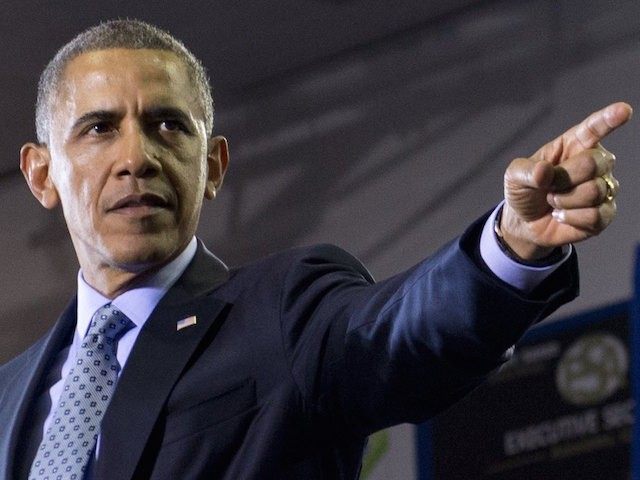President Obama’s justification for nixing the Keystone Pipeline was yet another example of Oval Office demagoguery—a destructive impulse also rampant among those vying to succeed him.
Instead of intelligent debate on the challenges facing the nation, voters are subjected to half-truths and non-truths—theocratic nonsense that begets policies denying Americans a more hopeful future.
The pipeline would have carried 800,000 barrels a day of Canadian, mostly tar sands oil to the U.S. Gulf ports. Obama sided with environmentalists who argued the oil would add to CO2 emissions and global warming and create only a few thousand jobs during the construction of the pipeline.
Obama cited the imperative for American leadership ahead of the UN summit to slow down climate change. Instead, the president gave us an exercise in environmental, economic and political hypocrisy.
Tar sands oil will not go away. Rather much will be sent to China, via Canadian West Coast ports, where it will be refined by more polluting technologies than would be applied at U.S. Gulf refineries. Some will ship to U.S. markets via trucks and trains at much greater risk of environmental disaster than imposed by pipeline transportation.
The decision will deprive U.S. Gulf communities of permanent refinery and supporting service sector jobs—not just temporary construction employment.
The president cynically abused labor unions that represent petroleum and construction sector workers. He knows those will support Hillary Clinton in 2016 no matter what he does, but he caved to affluent environmentalists, who might jump ship, for example, if scientist Ben Carson becomes the GOP nominee.
Keystone is no one off. Demagoguery and cynical political calculations have deeply seeped into all aspects of the presidential campaign and promise to become bad public policy in 2017.
Merely cutting taxes, for example as Jeb Bush proposes, will not restore the Golden Age of the Gipper. Rekindling Ronald Reagan’s 4 percent growth requires curbing runaway health care and education costs, imposing efficacy tests on business regulations and curtailing entitlement programs that enable 7 million able men between the ages of 25 and 54 to opt out of working. Still, pandering to country club Republicans who believe they are overtaxed helps Jeb fill his campaign coffers.
Donald Trump’s accusations that Janet Yellen is not raising interest rates, because she is hewing to President Obama’s fear of bursting a financial bubble, have no significant basis in facts. However, it sells well among gold standard luddites and monetary conservatives who vote in GOP southern primaries and would subject the Federal Reserve to tighter congressional oversight—and harmful political influence.
Perhaps more dangerous—only because it is more complex and difficult to debunk—are Hillary Clinton’s incessant complaints about discrimination against women and the pay gap. The facts are for many segments of the economy and society gender bias is a real issue but it cuts both ways.
For example, thanks to the true blue liberals that run America’s secondary schools and colleges, those institutions are decidedly biased against males.
Many more boys than girls drop out of high school without graduating, and universities award nearly 50 percent more degrees to women than men. If those numbers were reversed, the civil rights division of the Justice Department would be suing educators everywhere to create programs to rebalance the ledger.
Facing doubts about her integrity, Clinton needs support from radical feminists among the intelligentsia, who appear at times to be seeking not equality but rather to reduce males to the status of the “second sex.” She ignores the greater difficulties young men face getting the education necessary to succeed.
Victimizing one group to appease another is hardly good public policy. Whether it’s zealots in the environmental, anti-tax, anti-Fed or feminist movements, the politics of blame and deceit are simply bad for restoring the economy and the nobler goal of accomplishing a more just society.
Peter Morici is an economist and business professor at the University of Maryland, and a national columnist. He tweets @pmorici1

COMMENTS
Please let us know if you're having issues with commenting.